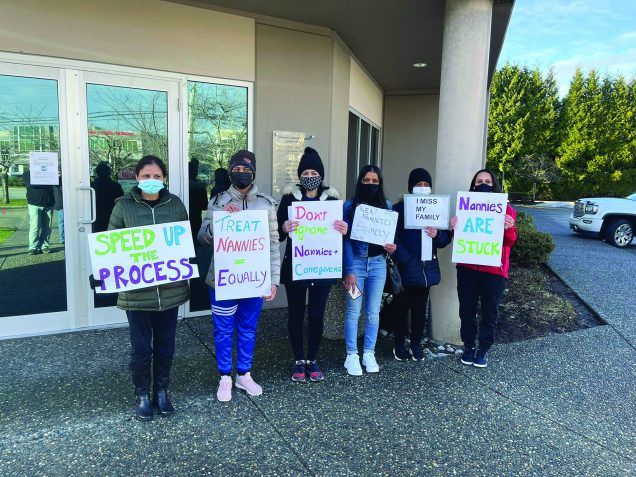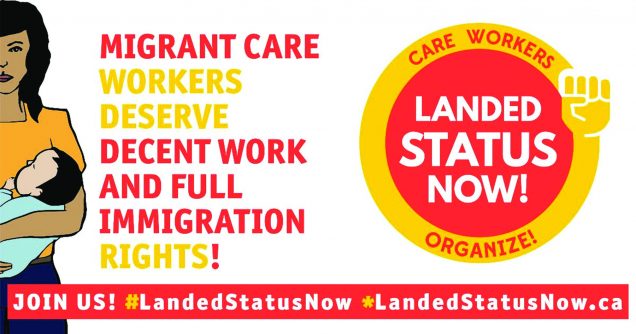Migrant caregivers left out again in PR pathway — advocates
Migrant caregivers left out again in PR pathway — advocates
 By Veronica Silva Cusi
By Veronica Silva Cusi
The Philippine Reporter
LJI Reporter
Thousands of migrant care workers are left out again of a government program that was intended to put them on a path to permanent residency.
The Home Child Care Provider Pilot Program (HCCP) closed 17 days after it was opened this year after the cap of 2,750 has been met, according to the federal government website. It is the only path for some temporary foreign workers, including some kababayans, and they will have to wait another full year before it reopens for application.
Migrants advocates, such as the Caregivers’ Action Centre (CAC) and the Migrants Workers Alliance for Change (MWAC), say the “unfair language, education, and work requirements” are some of the hurdles that’s preventing migrant workers to apply. They also called on the federal government to address the backlog in applications as some have been waiting for years to be reunited with their families.
“The HCCP is the only federal pathway to permanent residence for temporary foreign workers taking care of children, and it is designed in a way to exclude most migrant women,” said Jhoey Cruz, organizer with the MWAC, and a former migrant care worker, in a statement.
HCCP is a five-year pilot program that allows qualified caregivers and their family to become PRs. A similar program is the Home Support Worker Pilot (HSWP), and caregivers are encouraged to apply to any of these programs. To qualify, the caregiver must have full-time work experience as a home child care provider classified as National Occupational Classification (NOC) 4411 or as home support worker (NOC 4412).
June Reyes, a migrant care worker in Eastern Ontario, has been waiting for HCCP to reopen this year as she wants to be reunited with her children.
“What is going to happen to my kids? My daughter is 18 already, will I be able to bring her here to Canada?” Reyes said in the MWAC statement. “I’m a single mother and being alone working here is so difficult. The government is not helping us. Permanent immigration status for all is the only solution.”
MWAC said 2,750 spots is not enough, and that not everyone qualifies for the requirements of Canadian Language Benchmark (CLB) level 5 and post-secondary education.
As of press time, the HSWP is still open with the same cap as 2,750 for the year.
 Backlogs
Backlogs
Aside from limited application spots, caregivers have also been demanding to fast track their application for PR to be reunited with their families soonest.
CAC said in a separate statement that some nannies staged a rally this week in front of the office Liberal MP Sukh Dhaliwal (Surrey—Newton) in Surrey, BC “to demand faster processing of their permanent residency applications.”
The backlog was reported to be 1.8 million last year, and government put some of the blame on the pandemic.
“We at Caregivers’ Action Centre – Migrant Workers Alliance for Change are supporting their fight,” the statement reads.
If migrant workers do not qualify to the HCCP and HSWP, CAC suggests the Humanitarian and Compassionate (H&C) stream.
Migrants advocates said some caregivers have been struggling more during the pandemic. Some are “trapped” in their workplaces, forced to work extra hours without commensurate pay or even when sick. Others have lost jobs but are not qualified for pandemic supports. Some of these struggles were documented in a 2020 report titled “Behind Closed Doors.”
Migrant Rights Network, which counts MWAC and Migrante Canada chapters as some of its members, have been calling for status upon arrival instead of temporary work permits, some of which are tied to specific employers.



Comments (0)